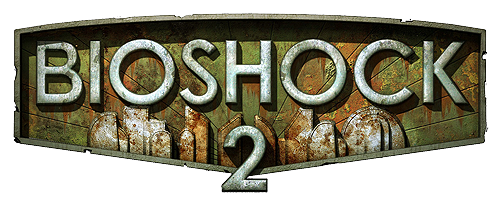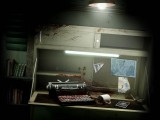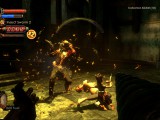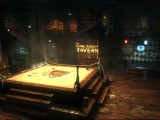Ever since the BioShock 2 launch, 2K Games have been giving PC players high blood pressure and ulcers thanks to a laundry list of problems with the game, ranging from its Games for Windows Live integration and DirectX issues to the infamous “Rapture Metro” map pack, giving much credence to the view that the game was effectively left to rot on the platform.
To add insult to injury, this sentiment was already firmly established before the publisher’s wishy-washy approach to “The Protector Trials” and “Minerva’s Den” DLC packs, which were originally slated for – and then later announced cancelled, only to move back to production – the PC. 2K community manager Elizabeth Tobey sums up the news in a sentence: “We have resumed development on all three and they will be coming to PC.” 1)http://forums.2kgames.com/forums/showthread.php?p=1254568#post1254568
Although the aforementioned – plus an additional patch – are now back in production, the only real response to this whole affair can but resemble this, especially after Irrational Games head honcho Ken Levine jumped to a profanity-laden PR save at Kotaku: “If you want to know the future of gaming, buy a PC. And pay attention. Because above all, that thing on your desk is a crystal ball.” 2)http://kotaku.com/5675559/the-future-of-pc-gaming-according-to-the-lead-creator-of-bioshock Although Tobey originally cited temporal and technical reasons for the content’s cancellation, the reason was just as much a financial one; in video game development, after all, these factors are all very much intertwined. Tobey explicates:
… we could not resolve these issues to our standards and so could not release to cert. As with all games, however, the dev cycle must end and patches and updates must conclude so that the team can move on to other projects. We hit that deadline without the content being in a state we were satisfied with, so we did not release it. 3)http://forums.2kgames.com/forums/showthread.php?p=1254568#post1254568
To be sure, this decision is highly understandable, granted a PC release of this type is easily a zero value venture when measured in budgetary terms; yet what their move to cancel the project was grossly selling short was the amount of goodwill the company would lose in the process. While moving staff off to new projects may have been a natural decision to make, development simply does not appear the same internally and externally – what was simply wrapping up and moving on for the BioShock 2 team sounded and looked like abandonment and broken promises to the player base.
Furthermore, the dissatisfaction and disappointment relating to the perceived lack of support had been brimming ever since the title’s launch, and the dearth of information related to the PC release dates did not help things at all. Tobey’s sudden announcement of the projects’ cancellation, though made in earnest to alleviate speculation and restlessness, simply happened to open the floodgates for a tidal wave of anger that had been building up in the community.
 What the team seem to have overlooked was the fact that losing goodwill at this point, late in the game’s shelf life, would be extremely hard to recoup any time soon: BioShock 1 and 2, despite their clear-cut lineage with the System Shock games, are both extremely unique in their treatment of tying various ideologies and philosophies to gameplay as well as sporting a unique, unreplicated aesthetic – both features that make players very loyal to the series. Therefore, the one fact that I believe prompted 2K Games to renegotiate their stance was the sudden realization that BioShock 2 was done, over, finito, and that BioShock: Infinite (which in itself had been receiving some criticism thanks to its premature announcement and faraway release date) was still years and years away from release. There would be no game in the near horizon to recoup this lost excitement.
What the team seem to have overlooked was the fact that losing goodwill at this point, late in the game’s shelf life, would be extremely hard to recoup any time soon: BioShock 1 and 2, despite their clear-cut lineage with the System Shock games, are both extremely unique in their treatment of tying various ideologies and philosophies to gameplay as well as sporting a unique, unreplicated aesthetic – both features that make players very loyal to the series. Therefore, the one fact that I believe prompted 2K Games to renegotiate their stance was the sudden realization that BioShock 2 was done, over, finito, and that BioShock: Infinite (which in itself had been receiving some criticism thanks to its premature announcement and faraway release date) was still years and years away from release. There would be no game in the near horizon to recoup this lost excitement.
Another key issue separated the DLC project from its peers: Not only was Minerva’s Den an actual narrative continuation and finale to the BioShock narrative, it also carried with it high artistic and qualitative merit not often seen in conjunction with downloadable content. Therefore, more than anything else, the cancellation would have been a massive waste of potential, something that was even further exacerbated by the runaway success of the DLC: Both its advertising and excellent reviews succeeded very much in developing interest in the BioShock 2 player base, prompting far more fan interest than originally anticipated.
Luckily for us, the company did ultimately come to their senses after a public outcry that ran through the blogging community – as much as 2K Games are surely taking a financial hit for their decision to reopen development on the ports, I’m sure it will be worthwhile simply in recouping some of the already-lost goodwill. After all, our collective memory is really really short, and like the Left 4 Dead 2 boycott illustrated, players are often willing to return once their qualms are adequately and respectfully addressed… 4)http://www.gamespot.com/pc/action/left4dead2/video/6238431/gabe-newell-behind-left-4-dead-2-and-beyond-interview
To sum things up, several key points arise:
Firstly, underestimating players’ need for closure and finality, whether it is narrative or gameplay-related, or simply a matter of a final bug-fixing patch (this is why fan patches are so popular; in the case of BioShock 2, the outstanding issue with the Rapture Metro greatly exacerbates this), is surely closely related to our grokking tendency. I don’t think we have adequately addressed our need to understand or perceive narratives in video games in their totality and entirety. What follows, though, is that the more (engaging a) narrative a game has, the more its players will want to see it through.
Second, creating expectations is exactly what PR staff dreams are made of. Yet when things went awry in this particular case, the wave of hype and critical reception that “Minerva’s Den” was riding only worked to amplify and exacerbate the public’s negative reaction to its cancellation. Tough luck for the department especially given how far away from release the next game in the series remains.
Third, we must surmise, 2K Games took very lightly the role of player goodwill. One avenue to looking at the issue at hand could be, for instance, Alfred O. Hirschman’s classic Exit, Voice and Loyalty (1970), which superficially seems to be highly applicable to consumer behaviour in relation to game development. In any case, gaming journalists should be more inclined to discuss the topic of goodwill overall, if only to ensure that nothing of this sort occurs again. It’s in everybody’s best interests.
 Finally, I should think, utterly lost in this shuffle, both in terms of the company’s reputation as well as the game’s public perception, are 2K community manager Elizabeth Tobey’s grassroots attempts at bettering fan interaction at the Cult of Rapture, the company’s fan hub for the BioShock franchise; not only did she spearhead the BioShock 2 ARG “There’s Something in the Sea” and produce podcasts on the website, she has also applied a vastly more hands-on approach to tech support in the 2K forums than is the norm.
Finally, I should think, utterly lost in this shuffle, both in terms of the company’s reputation as well as the game’s public perception, are 2K community manager Elizabeth Tobey’s grassroots attempts at bettering fan interaction at the Cult of Rapture, the company’s fan hub for the BioShock franchise; not only did she spearhead the BioShock 2 ARG “There’s Something in the Sea” and produce podcasts on the website, she has also applied a vastly more hands-on approach to tech support in the 2K forums than is the norm.
Now, thanks to a misguided decision somewhere up the corporate ladder, her attempts were dangerously close to being nullified – or worse still, actually negated: After all, it seems only natural that a portion of players are, thanks to Tobey’s work, so attached to and engaged with the game series that they became vastly more infuriated with 2K’s now-reversed decision not to publish the DLC than they would have without her work.
References



